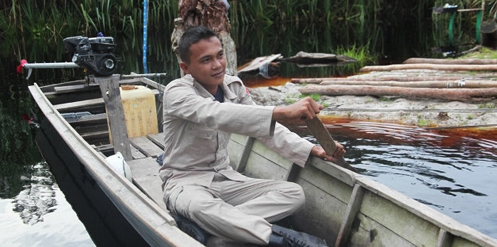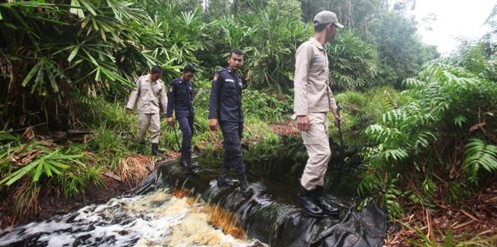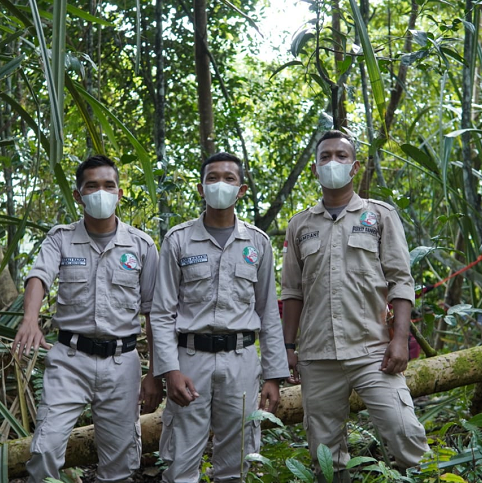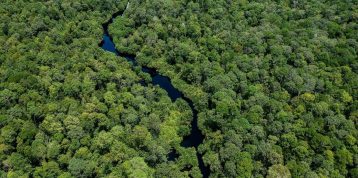“We bring various types of food such as rice, instant noodles and canned food. We also bring cooking utensils so that we are able to cook meals everyday,” he shares.
“Despite having to live in the middle of the forest and bathe with canal water, I am happy with my job. I am proud to be a ranger because we rangers are the ones who maintain the forest and keep nature safe from many threats,” he says.
Yet, though he has no complaints about being a RER ranger, perhaps the most challenging part of the job for Manalu is having to stay in the forest for 20 days a month, leaving him 10 days to spend with his wife and two daughters.
Manalu shares that homesickness sometimes compels him to climb tall trees in an effort to get a phone signal to contact his family.
“Sometimes when I miss my family, I will look for a phone connection by climbing a 30-metre tree to call them,” he explains.
The forest ranger says that his family has always supported him and never complained about his job that sees him coming home rarely.
“Fortunately, my wife and my children do not make a fuss over my job – they understand that I work out in the forest for the needs of our family,” Manalu says.
Manalu’s dedication as a ranger represents his pledge to continue ensuring preservation of the environment. He is proud about RER’s commitment to restore and conserve ecologically important peat forest areas on Indonesia’s Kampar Peninsula.
“I feel very upset with people who practice illegal logging and peatland burning,” he explains.
“I hope that there will no longer be such illegal practices in time, and that we keep taking care of our environment for our future,’ he closes.





